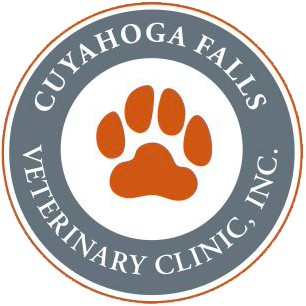We’re knee-deep into summer time and with summer comes mosquitoes and with mosquitoes comes the risk of heartworm disease. We’ve already seen it this year, and we’d prefer to not see any more of our patients infected and affected.
|
Heartworm disease is a caused by a parasite that lives in the blood vessels around the heart. Dogs and cats acquire these heartworms by being bitten by a mosquito carrying a larval form of the worm. Heartworm disease will kill a dog if treatment isn’t initiated in time (even with treatment, a dog’s life is at risk). Cats, which don’t usually develop as much of a parasite count in their vessels, usually outlive the parasites, but not before the parasites cause irreversible damage to the lungs. Sudden death is possible for cats, though.
Which dogs and cats are at risk for exposure to heartworm disease? Any pet that can potentially share an environment with mosquitoes. This includes indoor cats and dogs as mosquitoes can make it indoors! Therefore, all dogs and cats in northeast Ohio can have exposure to heartworm.
Symptoms of heartworm disease include coughing, lethargy/fatigue, decreased appetite and weight loss. In dogs, heartworm disease leads to heart failure: coughing, exercise intolerance, lethargy. In cats, those that survive will have symptoms consistent with asthma: difficulty breathing, lethargy, wheezing, hiding. If you’re thinking, “But, Dr. Ryan, lots of things can make dogs cough and cats hide,” you’re spot-on! These signs often begin as subtle, non-specific symptoms but they can progress and have disasterous effects.
There is good news when it comes to heartworm disease in our pets and it is this: heartworm disease is preventable!
Further, heartworm preventive treatments also protect pets against many (if not all) of the intestinal parasites they may encounter. Some even incorporate flea and/or tick protection. When we consider that pets can share intestinal parasites with people, and that fleas and ticks can carry diseases that affect people, it becomes clear that regular parasite treatment in the form of heartworm preventive is good public health.
There are a number of good, safe, effective heartworm preventive treatments available. The treatments that we use at Cuyahoga Falls Veterinary Clinic are Interceptor, ProHeart 6, Revolution and Trifexis.
There are differences between these are how they are given and the parasites that they prevent/control/treat. For more information on the difference between prevent and control and treat, visit our previous blog post, Parasites and Animals – Decoding the Label Claims.
For internal parasites only:
**Interceptor is given as a monthly, oral tablet for dogs and cats. — <2013 UPDATE: Interceptor has been replaced with Sentinel by manufacturer Novartis. Sentinel offers a level of flea control, though does not kill fleas.>
**ProHeart 6 is an injectable treatment that protects dogs against heartworm and hookworm for 6 months.
For internal and external parasites:
**Revolution is a topical, monthly treatment.
**Trifexis is an oral, monthly tablet
Don’t ignore the potential health concerns that parasites, particularly heartworm, can cause in your pet. Be proactive! Practice preventive medicine and put your pet in the best position for the best quality of life!


